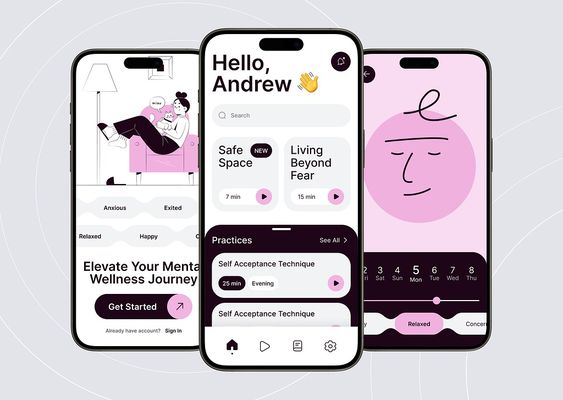Introduction:
In today's fast-paced world, mental health is just as important as physical health. Yet, seeking help for stress, anxiety, or other mental health concerns can be daunting for many. Thankfully, technology offers a readily accessible solution: mental health apps. These pocket-sized tools provide support and guidance right at your fingertips, offering a range of features from meditation and mindfulness exercises to cognitive behavioral therapy (CBT) techniques and mood tracking.

But with a plethora of mental health apps available, finding the right one for your needs can feel overwhelming. This article will guide you through the process, exploring the key features of different mental health apps and helping you determine which one aligns best with your individual needs and preferences.
Navigating the World of Mental Health Apps:
Before diving into specific apps, it's crucial to understand the different types available. Some apps specialize in specific conditions like anxiety or depression, while others offer a broader range of tools for overall mental well-being. Some popular categories include:
- Meditation and Mindfulness Apps: These apps offer guided meditations, breathing exercises, and mindfulness techniques to promote relaxation and reduce stress.
- CBT-Based Apps: These apps utilize Cognitive Behavioral Therapy principles to help you identify and manage negative thought patterns and develop healthier coping mechanisms.
- Mood Tracking Apps: These apps allow you to log your moods, track triggers, and identify patterns in your emotional well-being.
- Sleep-Focused Apps: These apps offer guided meditations, relaxing sounds, and tips for improving sleep hygiene to address insomnia and other sleep disturbances.
- Self-Care Apps: These apps provide a holistic approach to mental health, offering a combination of tools like journaling prompts, gratitude exercises, and goal-setting features.
Choosing the Right App for You:
Selecting the best mental health app is a personal decision. Consider the following factors:
- Your Specific Needs: What are your primary mental health concerns or goals?
- Features: What types of tools and resources are most important to you (e.g., meditation, CBT exercises, mood tracking)?
- User Interface and Design: Is the app visually appealing and easy to navigate?
- Cost: While many apps offer free versions, premium features often require a subscription.
- Reviews and Ratings: What are other users saying about the app's effectiveness and user experience?
Remember, mental health apps are not a substitute for professional help. If you're struggling with severe mental health issues, it's essential to consult a licensed therapist or healthcare provider.





